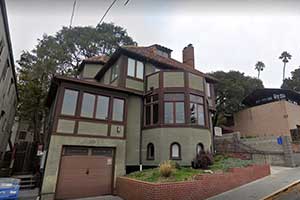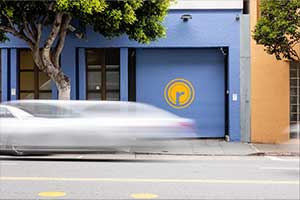Skip To Rehab Listing
Treatment Facility Settings and Recovery Methods
Berkeley's many rehabs, some of which are laid out below, address an issue that is prevalent in cities across the United States: alcohol and drug abuse. These facilities fight this adversity locally by providing sites and services that are suitable for clients within the area. These settings include: short term rehab centers, outpatient day treatment, inpatient rehab programs, long term drug and alcohol rehabs, inpatient detoxification centers.
Drug and alcohol rehab programs use many approaches, from traditional methodologies to newer methods such as: 12-step facilitation approach, cognitive/behavior therapy, substance abuse counseling approach, couple/family therapy, group therapy, anger management. The result is a variety of programs that clear the path to achievable lasting recovery for many clients.
Special Programs for Substance Abuse Offered by Treatment Centers
Individuals struggling with drug or alcohol dependency generally require personalized support to break free from addiction. That is why drug and alcohol rehab programs in Berkeley offer special resources that help clients within their specific circumstances. Some of these services are included here: suicide prevention services, transgender or (LGBT) clients, programs for the hearing impaired, self-help groups, clients with HIV/AIDS, active duty military.
Rehab Payment Alternatives in Berkeley, California
Patients encounter different economic circumstances, which is the reason substance abuse treatment centers offer many payment options, like: private medical insurance, cash or self-payment, medicaid, medicare, sliding fee scale, state corrections or juvenile justice funds, county or local government funds.
Financing should never be a barrier to substance abuse rehabilitation. Rehabs direct patients toward the funding alternatives that serve their specific financial needs.
With a range of centers, programs, resources, methods and payment options, Berkeley offers patients several options when it comes to seeking recovery from substance abuse.
Commonly Asked Questions about Addiction and Treatment
Can I go cold turkey to stop abusing opioids?
While going "cold turkey," or suddenly stopping the use of opioids, might seem like a fast way to begin recovery, it's generally not recommended due to the severity of withdrawal symptoms and potential health risks.
Opioid withdrawal can be intensely uncomfortable and, in some cases, hazardous. Symptoms can include severe cravings, restlessness, muscle and bone pain, insomnia, diarrhea, vomiting, cold flashes, and involuntary leg movements. In severe cases, withdrawal can lead to serious dehydration or electrolyte imbalances.
Furthermore, abruptly stopping opioid use can significantly increase the risk of relapse. The discomfort of withdrawal symptoms may make it more difficult to stay abstinent, and an individual may be tempted to use again just to relieve these symptoms. If a person relapses and takes the same dose they were previously accustomed to, the risk of overdose is high because the body's tolerance to the substance has decreased.
For these reasons, opioid withdrawal should ideally be managed under the supervision of healthcare professionals. Medication-assisted treatment (MAT), which includes medications like methadone, buprenorphine (Suboxone), and naltrexone, can be used to help reduce withdrawal symptoms and cravings. These medications work by acting on the same brain receptors targeted by opioids, but they do so in a safer manner that helps to manage withdrawal and reduce the risk of relapse.
In addition to MAT, counseling and behavioral therapies are typically part of a comprehensive treatment program for opioid use disorder. These approaches can help individuals develop the skills and strategies needed to maintain recovery in the long term.
How do I repair relationships damaged by my drug and alcohol abuse?
"Repairing relationships damaged by substance abuse is a process that takes time, effort, and a sincere commitment to change. Here are some steps to consider:
Achieve Sobriety: The first step in repairing relationships is to focus on your recovery. Demonstrating commitment to sobriety shows your loved ones that you are serious about making a change.
Acknowledge the Damage: Be open and honest about the harm your substance abuse has caused to your relationships. Acknowledging the problem is the first step towards making amends.
Apologize Sincerely: Offer a sincere and heartfelt apology. It's essential to take responsibility for your actions and the pain they've caused, without making excuses.
Make Amends: Making amends goes beyond apologizing. It involves taking action to correct past wrongs where possible, whether that means repaying debts, resolving past disputes, or simply making a commitment to behave differently in the future.
Open Communication: Maintain open, honest, and regular communication with your loved ones. Be open to their feelings and feedback, even if it's tough to hear.
Be Patient: Healing takes time. Your loved ones may not be ready to immediately forgive or trust you again. Respect their feelings and give them the time they need to heal.
Seek Professional Help: Family or relationship therapy can provide a safe and structured environment to address issues, improve communication, and begin the process of rebuilding trust.
Maintain Consistency: One of the most crucial steps in repairing relationships is consistently demonstrating your commitment to your recovery and to positive change. This consistency helps to rebuild trust over time.
Support Their Healing: Understand that your addiction may have caused significant pain and trauma to your loved ones. Support them in their own process of healing, which may include their own therapy or participation in support groups.
Rebuild Trust: Broken trust is often the most challenging aspect of a relationship to mend. Proving through actions over time that you're committed to your sobriety and to being reliable and truthful can gradually rebuild trust.
Is substance abuse recovery a life long process?
Substance abuse recovery is often described as a lifelong process. This is due to the chronic nature of addiction, which is a brain disease characterized by compulsive drug seeking and use, despite harmful consequences. Like other chronic illnesses such as diabetes or heart disease, addiction often requires long-term or repeated care to manage symptoms and prevent relapse.
Here are key reasons why recovery is often a lifelong process:
- Changes in Brain Function: Substance use can cause long-lasting changes in the brain that persist even after the substance is no longer used. These changes can lead to cravings or triggers for drug use, which can potentially lead to relapse.
- Behavioral Changes: Substance use often involves habits and behaviors that become deeply ingrained over time. Changing these behaviors and developing new, healthier habits can take time and ongoing effort.
- Coping Mechanisms: Many individuals use substances as a way to cope with stress, trauma, or other underlying issues. Recovery often involves learning new coping mechanisms and addressing these underlying issues, which can be a long-term process.
- Support Systems: Recovery often involves building or rebuilding supportive relationships and social networks, which can take time.
- Maintenance of Physical and Mental Health: Substance use can lead to a variety of physical and mental health issues. Managing these conditions and maintaining overall health can be an ongoing part of recovery.
- Relapse Prevention: Relapse rates for substance use disorders are similar to those of other chronic illnesses. Ongoing care, support, and strategies for managing cravings and triggers can help prevent relapse over the long term.













